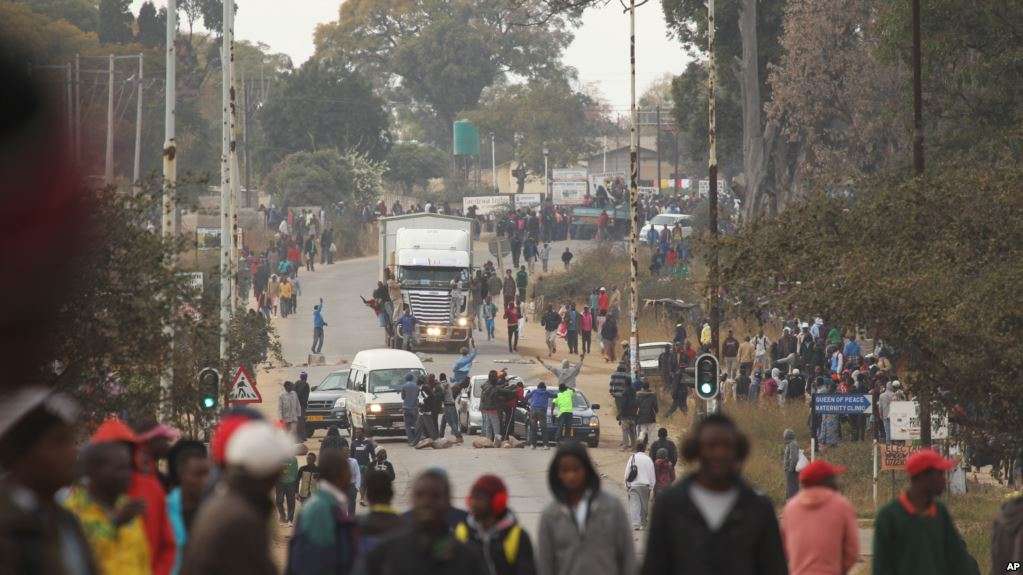Zimbabwe was not the first — and surely won’t be the last — country in which an African government shut down the Internet to suppress political dissent, as I’ve found in my ongoing research project tracking such shutdowns. During 2016 and 2017, the continent saw at least 119 total shutdowns, 43 social media blackouts and 237 days of delayed Internet. The shutdowns ranged from a few hours in Zimbabwe in 2016 to 40 weeks in Cameroon, from June 2017 to January 2018.
Governments tend to shut down the Internet after intense demonstrations that challenged the government’s hold on power. In 2019 alone, people in at least five countries — Chad, Congo, Zimbabwe, Sudan and Gabon — had their Internet switched off by the government.
Shutting down the Internet has broad ripple effects
Human rights advocates have been arguing that when governments disrupt the Internet, they are grossly violating individual rights to freedom of expression and access to information. Access to social media allows people to share information about human rights abuses at home and abroad; popular activists tend to have hundreds of thousands of social media followers all over the world. Kenyan activist Boniface Mwangi has more than 1 million followers. A single post by Mwangi, Evan Mawarire or Cheikh Fall can travel far and fast, especially once it circulates on Facebook’s encrypted text-messaging service, WhatsApp.
But disrupting Internet access also profoundly affects a country’s economy. In places like Zimbabwe, where most citizens and governments depend heavily on mobile banking and cash transfers, national economies lose millions in revenue during Internet blackouts. Blackouts also slow or stop remittances from flowing into low-income countries. Banks, hospitals and schools find it harder to function without the Internet. When the Zimbabwean government briefly suspended its Internet ban, people speculated that this was done to allow civil servants’ salaries to be processed.
The Internet’s democratic and economic effects are intertwined
Since 2000, many African countries have made remarkable progress toward democracy. And that progress, in turn, has helped enable expansions of radio, television and the Internet, with far-reaching effects. My analysis of Afrobarometer surveys reveals that the number of Africans across the continent reporting that they receive news from the Internet or social media rose from 2.6 percent in 2008 to 17.6 percent in 2018. In 2018, nearly 50 percent of African respondents reported that they have access to mobile phones, which they use daily. This not only improves communication but also accelerates economic growth by lowering the cost of banking and facilitating commerce.
Since the 2011 Arab Spring, protests have spread across the continent using Internet and hashtag campaigns, including #feesmustfall in South Africa, #bringbackourgirls in Nigeria, and a push to oust Senegal’s longtime leader. Zimbabwe’s #thisflag campaign helped push out longtime dictator Robert Mugabe. Pastor Evan Mawarire, leader of #thisflag, is one of the activists arrested last week in Zimbabwe for using social media to call for peaceful protests against the government’s proposed price hikes.
Authoritarian governments have developed ways to fight back against Internet freedoms
Meanwhile, academics and researchers who predicted that the Internet could challenge authoritarianism clearly underestimated how easily the Internet could be manipulated to bolster authoritarian survival.
In response, authoritarian regimes are developing sophisticated tools to censor online engagement. Those include co-option whereby they infiltrate the campaigns or pay off leaders, hiking the cost of the Internet, and complete shutdowns.
These aren’t new tactics; governments have long muzzled dissenting opinions by shutting down the news media. In most African countries, the government runs the major media outlets, making it infinitely easier for the state to monitor news — and, at times, fabricate it. The same governments also tend to have a monopoly over Internet and mobile telecommunications providers.
Strive Masiyiwa, billionaire and founder of the regional telecommunications giant Econet, reported that in both Zimbabwe and Congo, the governments directed his companies to shut down the Internet, warning that if they that failed to do so, the firm’s management teams would be arrested and thrown into prison.
Turning off the Internet, for authoritarian governments, is much like turning off the cameras and turning out the lights, giving cover for gross atrocities. During the most recent blackout, the Zimbabwean government allegedly unleashed soldiers in poor neighborhoods to beat up suspected protesters. Soldiers were also instructed to take people’s phones, preventing them from recording events to be shared later and making it hard to reach loved ones and confirm their safety.
In Congo, the government forced providers to shut down the Internet before recent elections and for three weeks after they took place, making it harder to protest or challenge irregular election results. Officials defended this to Reuters by saying Internet and SMS services were cut to preserve public order after “fictitious results” began circulating on social media.
When economic slowdowns come alongside those shutdowns, governments have blamed the loss of income on protesters.
While human rights activists and Western governments routinely criticize Internet shutdowns, most governments face few or no consequences for doing so. As long as they reap rewards from shutdowns by ending anti-government protests or muzzling opposition, they will continue to use these silencing tactics.
